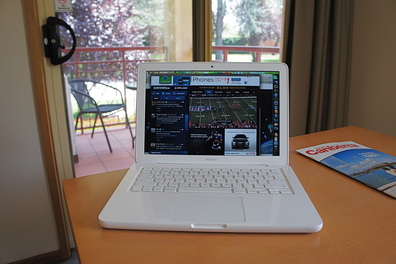Our individual bodies and minds combine to give us personalities. Psychologists currently list three levels of personality.
- Basic Traits / The Big Five (OCEAN) - Openness to new experiences, Conscientiousness, Extroversion, Agreeableness, Neuroticism
- Characteristic Adaptations - personal goals, defense mechanisms, values, beliefs, life stage concerns
- Life Story - past, present, and future woven into a vitalizing myth
If the basic traits are concerned with how we generally respond to stimulus, the characteristic adaptations are about how we specifically evaluate different kinds of stimuli as good or bad according to our own world views. How do we handle bad stimulus? With defense mechanisms. What do we do when we see good stimulus? We set personal goals to reach them. How do we know what is good or bad? With our values and our beliefs - in other words, our morals. And are there certain times when we evaluate different aspects of the world around us? Of course - during the different life stages that we go through. Let's examine each of these four questions individually.
First, what parts of our personality do we build as we grow and develop through life? The most accepted and influential theory that answers this question comes from Erik Erikson's work during the 1950's through 1980's. He proposed a theory that lists eight stages of human development. They are:
- Infant. In this stage, you are answering the question, "Can I trust the world?" As your hopes and needs are met or unmet, you develop feelings of trust or mistrust of the world.
- Toddler. In this stage, you are answering the question, "Is it ok to be me?" As you express your will, you learn whether it is ok to feel autonomy or shame and doubt when you act.
- Pre-School. In this stage, you are answering the question, "Is it ok for me to do, move, and act?" In addition to simple autonomy, your actions now have a quality of planning to them and you learn to trust your initiative when plans go well or feel guilt when they go poorly.
- School Child. In this stage, you are answering the question, "Can I make it in the world of people and things?" You are now entering a society of your peers and your relative competence gives you feelings of industriousness or inferiority.
- Adolescent. In this stage, you are answering the questions, "Who am I? What can I be?" You try things out, move in different circles, and begin to develop an identity that you feel a fidelity towards, or you suffer role confusion if your experiments do not feel right.
- Young Adult. In this stage, you are answering the question, "Can I love and be loved?" You make deep friendships or romantic attachments and learn to build intimacy rather than remain in isolation.
- Middle Adult. In this stage, you are answering the question, "Can I make my life count?" As you learn to care for people or things over long periods of time, you produce things that will last beyond you or you stagnate and leave things as they are.
- Late Adult. In this final stage, you are answering the question, "Is it ok to have been me?" As you look back on your life, you see the wisdom of your actions now that the long-term consequences of your intentions are known. If your life has been successful, you feel ego integrity. If you judge it to have been a failure, you may fall into despair.
These stages are not relegated only to these times in one's life and they are not done only one at a time. You can be successful at later stages having had difficulty in earlier times in your life or you may falter after many successes. That's ok. It is never too late to identify and add the positive elements from these stages to your current personality.
Next, as you go through these stages, not everything will always go well for you. In order to deal with these hard knocks of life, we develop defense mechanisms to guard our views of ourselves. These defense mechanisms also develop (or regress) as we go through life, and they do so through four different levels according to George Vaillant's theory from 1977. The four levels are:
- Pathological Defenses - psychotic denial, delusional projection, megalomania, paranoia
- Immature Defenses - fantasy, passive agressive, acting out, projection
- Neurotic Defenses - intellectualization, dissociation, repression
- Mature Defenses - humor, sublimation, suppression, altruism, anticipation
Obviously, we would like to develop the way we handle adversity until it can be said that we do so with mature defense mechanism. I find it easier to do this now that I am aware of it, but it does take practice, reflection, and sometimes a breath or two to tame my elephant and let my destructive emotions wash away.
The third question that indicates a characteristic adaptation of our second level of personality is, "How do we know what is right or wrong?" What are the values and beliefs we hold that drive us to progress nicely through life or put up our defenses in a negative reaction? I'm not talking about a universal morality just yet (that will come later in my discussion of ethics), but the personal development of morality that any individual can go through. Once again, a theory of stages of development for these traits has been put forth by the psychological community - this time by Lawrence Kohlberg in the 1950's and 1960's. His three levels of moral development are:
- Pre Conventional Morality - Rules are external and merely self-serving. Avoiding punishment or gaining rewards are the primary motivators.
- Conventional Morality - Others play a major role in morality. Feelings of empathy are considered. One wants to have good interpersonal relationships and maintain social order.
- Principled or Postconventional Morality - Moral rules are based on universal principles of justice, equality, the social contract, and individual rights.
If you are reading a blog about philosophy, you are clearly concerned with principled level three morality. Unfortunately, this is rather rare as some studies have found that only 10-15% of 30 year olds reach this level of moral consideration. Examining the news headlines, it is easy to see that many business and political leaders are not among these principled few, so in your own way, spread the word for others to follow this path. (Maybe email this article to a friend or share it on Facebook?)
Finally, lets examine the last question for this level of personality - what positive stimuli should we strive for once we've built our strong and mature personalities? In the Happiness Hypothesis, Jonathan Haidt reported on four broad categories of life goals that psychologists have identified. They are:
- Work and Achievement
- Relationships and Intimacy
- Religion and Spirituality
- Generativity & Legacy Leaving
While an examination of the other areas of personality led to fairly obvious "best practices" for a happy and successful life, this final area is not so easy to choose from. And that is a good thing. If everyone were striving for the same goals with the same perfect personalities, we would become a very one-dimensional and one-directional species. But these broad categories are just a hint of the amazing diversity with which we can spend our lives. It is probably not a wise idea to choose from only one of these areas for your life's goals, but I encourage you to find balance among them and then spend your time on them accordingly. Once you do that, you'll pretty much have figured out the meaning of life - at least for your life anyway.



